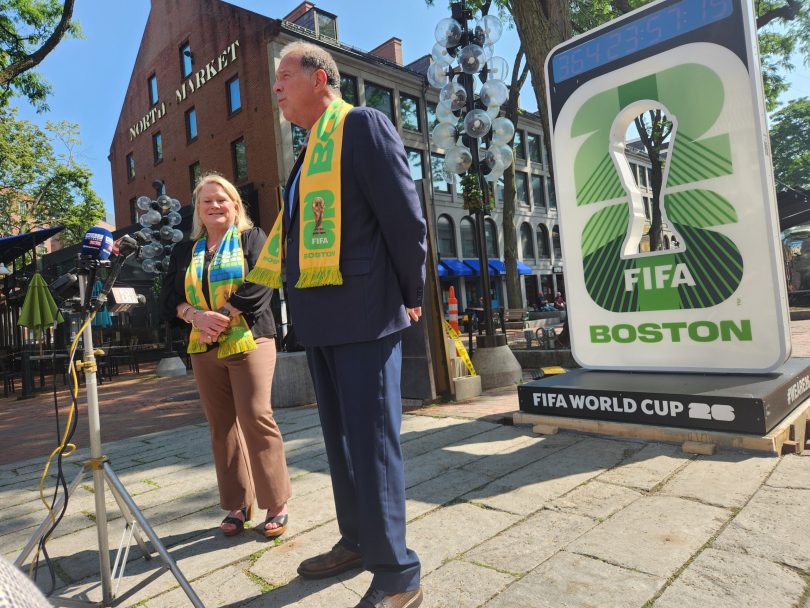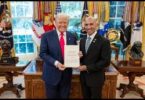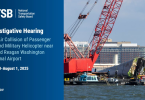IN SOCCER, maintaining possession of the ball is crucial.
But as planning for 2026 World Cup matches in Massachusetts ramps up, state and local officials, who are hoping the games will lead to economic activity from tourists, may not be able to control the state of play when it comes to how federal border officers are treating visitors coming in from other countries.
Multiple news reports in recent months have highlighted how some tourists have been stopped at the border, held inside immigration detention facilities but eventually allowed to head home. The headlines have travelers “freaked out,” as The Atlantic noted, and “online message boards have been humming with vacation worries” as well as advice.
““There’s only so much our local authorities can do,” said Juliette Kayyem, a national security analyst who has worked for homeland security departments at both the federal and state level, under President Obama and Gov. Deval Patrick. “It’s the mood, it’s not the policy.”
Tourism officials involved in the planning effort for local World Cup games expect a $1.1 billion economic boost to Massachusetts over three weeks next June and early July. Seven games, out of a total of 60 across the country, are set to take place inside Foxborough’s Gillette Stadium, which will be renamed Boston Stadium for the duration due to sponsorship rules under FIFA, the governing body that works to organize the World Cup.
Two million visitors are expected to stream into Massachusetts, and organizers estimate 450,000 tickets will be sold.
But local tourism officials are “not going to be able to overcome what’s happening day to day at our border,” Kayyem said. “German tourists being detained for six hours, people going missing. That stuff they can’t control.”
Even so, tourism officials are trying to stay positive. Martha Sheridan, the head of Meet Boston, the city’s nonprofit tourism agency, joined Mike Loynd, president and CEO of the Boston World Cup 2026 organizing committee, to unveil a countdown clock outside Faneuil Hall. The clock counts down to the first match on June 13 of next year.
Sheridan acknowledged that her agency is preparing for a decrease in international visitors this year, primarily ones who come from Canada, which has balked at President Trump repeatedly declaring his desire to turn the country into the 51st US state.
But she pointed to next summer’s World Cup as a unique draw that won’t be dampened by panicked travelers. “People will look at coming to the US as a place that’s safe and for the most part welcoming, and not alter their plans because it’s here,” said Sheridan.
She noted Canada and Mexico are also hosting matches alongside the US. For international visitors looking to stay in one region, they can go see games in Toronto, the Boston area, New York, and Philadelphia.
Asked about the detentions, Sheridan said, “Quite frankly, detentions do happen. I certainly don’t condone needless detentions. But what I’m hearing from some of our counterparts around the globe, a lot of what’s getting amplified are things that have already been happening for years, it’s now just very top of mind. But certainly, it’s a concern, we’re going to keep our eye on it, and I think for us, for the city of Boston, we’ll benefit from the fact that we do welcome all, and people will feel safe and welcome here.”
She added that people traveled to Russia and Qatar for World Cup matches in 2018 and 2022, respectively.
But while there were complaints about the two authoritarian countries known for human rights abuses hosting the World Cup, “at no stage did Qatar or Russia make themselves unwelcoming to the public that they wanted to come to the games, not in the way Trump is,” said Kayyem.
Kayyem pointed to the new travel ban, mainly affecting Middle Eastern and African countries, as an example. The ban, which went into effect this week, applies to foreign nationals from 12 countries, including Haiti, Iran, Somalia, Afghanistan, Libya, and the Republic of Congo, among others. Additionally, people from Cuba and Venezuela are among those who face heightened restrictions, according to NPR.
The ban carries an exception for athletes and coaches, but that doesn’t include family, friends, and fans.
Gov. Maura Healey and Boston Mayor Michelle Wu, who have clashed with the Trump administration on immigration issues and its attacks on Harvard University, are joining tourism officials in accentuating the potential for the World Cup to bring foot traffic, as well as a sense of connection and pride. Wu, a soccer fan herself, called it the “world’s unifying sport.”
Asked about any concerns about the federal attitude towards some tourists, Wu told CommonWealth Beacon in April, “We’re taking everything day by day as best we can to prepare for unexpected circumstances but also not jump ahead to assume we should be pulling back or rescinding or slashing plans we have in place.”
Healey took a similar tack on Wednesday before she headed to Boston University’s Nickerson Field for a “one year to go” event for the World Cup. Pointing to the opportunity for tourism dollars, Healey told reporters, “That’s what we’re really focused on. So in terms of how other things may factor in and play out, we’ll just have to wait and see.”










